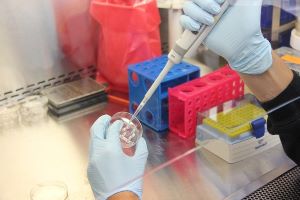Eight in 10 scientists 'agree' or 'strongly agree' that they know how their actions in the lab impact the environment, finds survey
November 2022 - Chemicals

The research also found that 90% 'agreed' or 'strongly agreed' that it is important to consider sustainability in their day-to-day lab work, while 84% 'agreed' or 'strongly agreed' that they would like to do more to reduce the impact of their day-to-day work.
More than 670 people in labs across 70 countries took part in the research, working in a variety of areas including academia, industry and education.
It also found that some scientists have already made steps towards reducing the environmental impact of their work, with 63% saying they have made changes either in their own research or within a research group, team or department.
Of those who have already made changes, the survey asked If any other factors had encouraged them to do so, with 63% stating 'cost reduction', and 58% saying 'greater effectiveness or efficiency', while 11% said they were required to by the organisation they work for.
Looking at what scientists are already doing to reduce the environmental impact of their work, almost half said they 'always' close fume hoods to reduce energy consumption (46%), with a further 29% saying they 'often' do.
Forty-four percent said they 'always' switch off equipment when not in use to save energy (44%), while more than a third (35%) said they 'often' do.
More than a quarter (27%) 'always' share equipment with other groups or teams to minimise downtime, while 33% say they 'often' do.
One in five (20%) said they 'always' reduce their water consumption in the lab, with a further 21% saying they 'often' do, while 17% 'always' wash and reuse single-use plastics, packaging, or other lab disposables, with 22% saying they 'often' do.
Research design and planning
Looking at research design and planning, 20% of respondents said they 'always' use solvent or reagent guides to reduce the environmental impact of their work, with a further 23% 'often' using them; 20% 'always' change reaction protocols to use less solvent or starting material, with 26% saying they 'often' do; and 18% saying they 'always' consider the principles of green chemistry when designing experiments, with a further quarter (25%) saying they 'often' do.
Professor Gill Reid, President of the Royal Society of Chemistry, said: "Chemical scientists are key to driving innovation in everything from clean energy to healthy ageing. We also know that scientific research has an environmental footprint and we have an opportunity to minimise this without compromising on the safety, quality, or impact of research."
Sign up to our newsletter to receive free insights from your sector...
Support Us...
We hope that you have found this article useful. This section is freely available for all to use. Please help support it by liking us or following us on our social media platforms:










